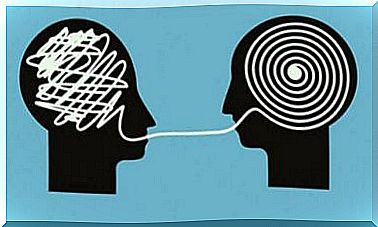Use The Pareto Principle To Be More Productive

A famous American Army veteran and politician once said, “There are no secrets to success. It is the result of preparation, hard work and learning by mistake ”. When one thinks of this quote, the Pareto principle may lose its meaning. After all , this sociologist seemed to advocate achieving goals with minimal effort.
Vilfredo Federico Pareto, born in Paris to Italian parents, may have presented his famous principle over 100 years ago, but even today there are many who continue to believe in it as if it were a law. Let’s take a look at what it is.
The pareto principle is also known as the 80/20 rule. This is because the Italian philosopher and sociologist said that 80% of the benefits you receive come from 20% of your efforts. This can be attributed to all areas of life, including the personal, the professional and the social.
Pareto, who during his time was also known as a famous economist, really invested in productivity. He did not believe in effort all the time (continuously), but in effort that really produced good results (selectively).
It may be an oversimplification to say that the pareto principle is a way of achieving success without effort, but it does involve being truly productive and focusing directly on relevant tasks at each level.
Pareto advocated a reduction in exertion in many areas of life. He felt that we should simply reinforce things that really resulted in great benefits. Despite the simplification of 80/20, his experiments led him to state that by putting in 15-25% of work, one can achieve 75-85% success.
The pareto principle has clear applications in daily life. It simply says that 80% of the consequences of what happens to us come from 20% of the causes. The sociologist discovered some unique situations: for example, 20% of the population of a country holds 80% of the total assets. This, together with other discoveries, led him to suggest that:
- 20% of customers tend to generate around 80% of a company’s revenue.
- 80% of your personal satisfaction comes from 20% of the people in your immediate circle. It is these that give you love, friendship, understanding, etc.
- When you exercise physically, only 20% of the activity will account for 80% of the benefits you receive.
So it is logical that Pareto thought that 20% of your effort, if well focused, could lead to 80% of your success. In contrast, however, the same level of effort will lead to significantly less success if poorly managed.
As a sociologist and economist, Vilfredo Pareto of course based his research on real examples. He postulated how to take advantage of his principle because we all do it subconsciously anyway.

Not everyone who works according to the pareto principle knows about it, but there are ways to find out. You may already be following the principle of:
- You delegate tasks you do not consider important.
- You do what you like, but do not spend most of the day with it.
- You do what other people want you to do, but you always spend more time fulfilling your own goals.
- You engage in activities that require a lot of effort, but you only use the necessary time during the day for them.
As you can see, the pareto principle can have interesting practical uses. It may require effort and perseverance, but it also indirectly suggests the need to distribute time efficiently. It really is a good principle that you can apply in your daily life. It’s simple, it reinforces what you’re already good at, and if you can optimize these 20% of your effort, you’ll see results immediately.









